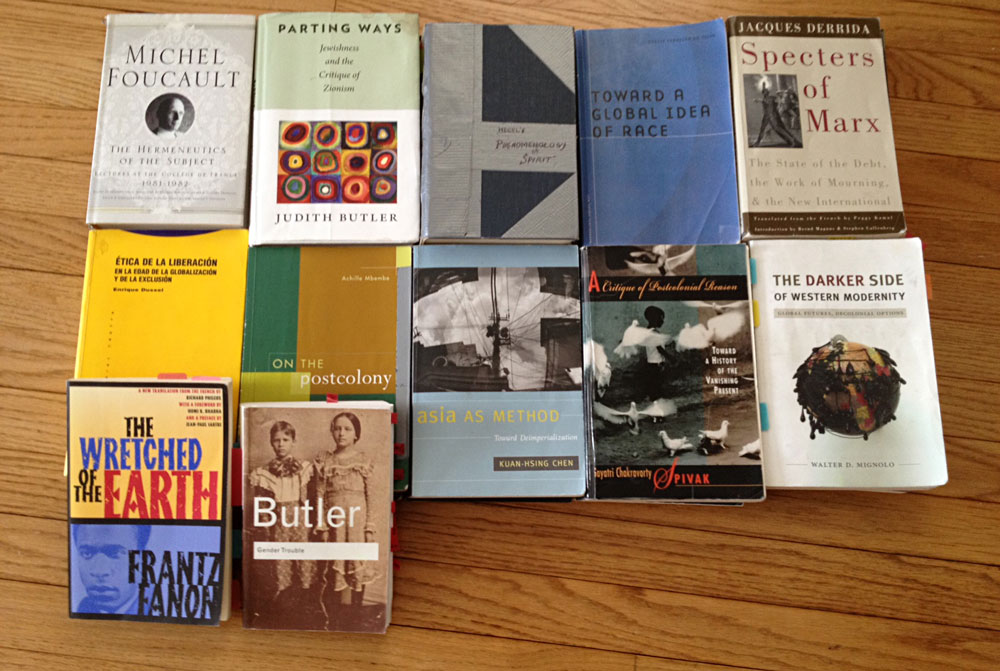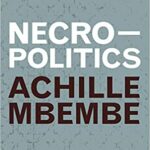Pivoting off select texts in theological method, this doctoral seminar introduces key theorists who, in the contemporary period, are influencing and shaping scholars’ work in religious and theological studies. Scholars covered are drawn from a set of those typically not covered at Taylor’s institution (Karl Marx, Frantz Fanon, Achille Mbembe (see above image of Mbembe’s Necropolitics), Michel Foucault, Jacques Derrida, Gayatri Chakravorty Spivak, Edward Said, Achille Mbembe, Tsenay Serequeberhan, Homi Bhabha, Alain Badiou, Giorgio Agamben, Jean-Luc Nancy, Gloria Anzaldúa, Judith Butler, Jasbir K. Puar, Walter Mignolo, Kuan-Hsing Chen, Denise Ferreira da Silva).
Syllabus

